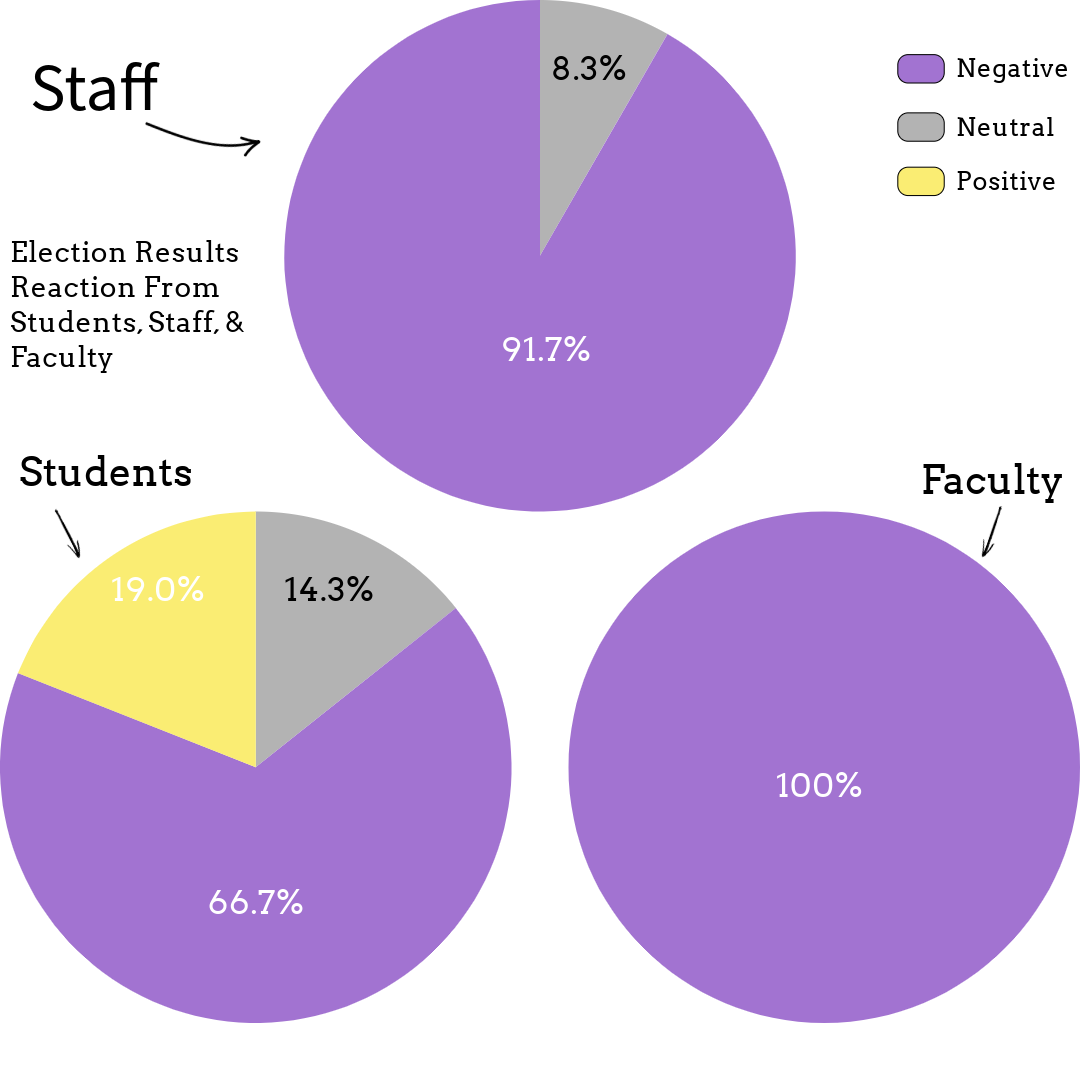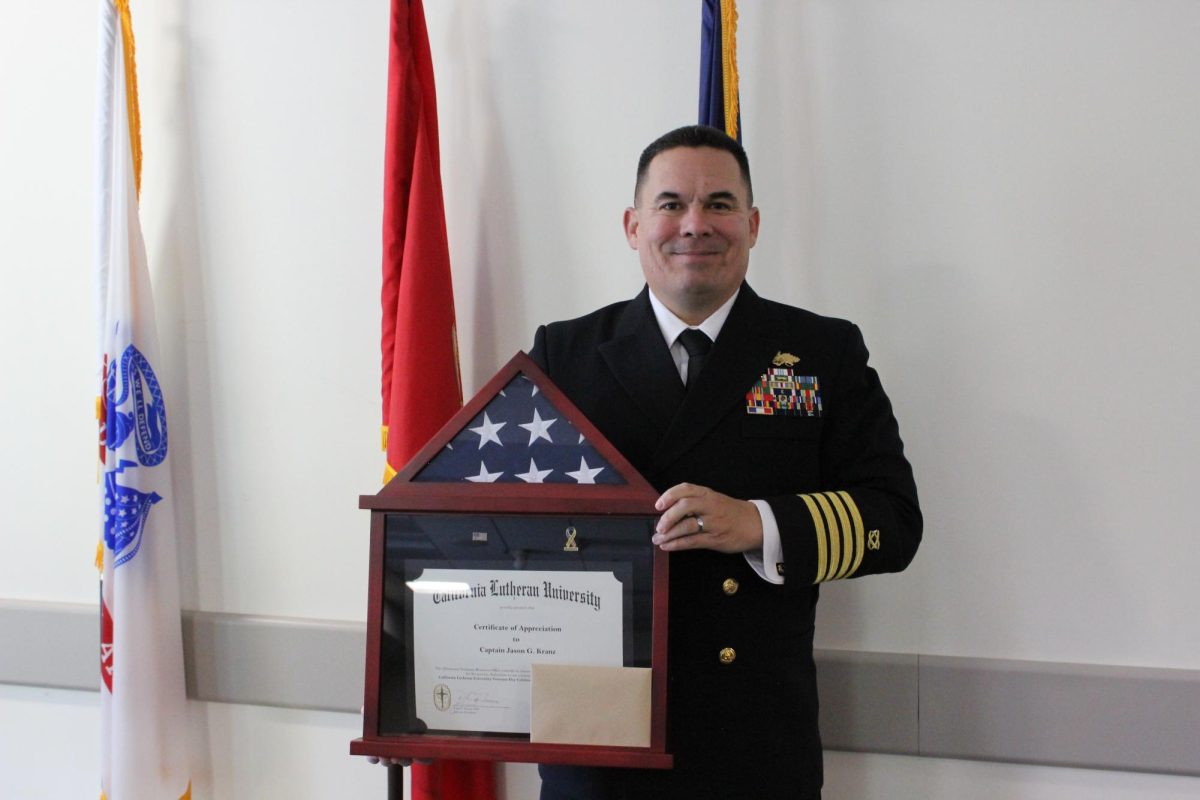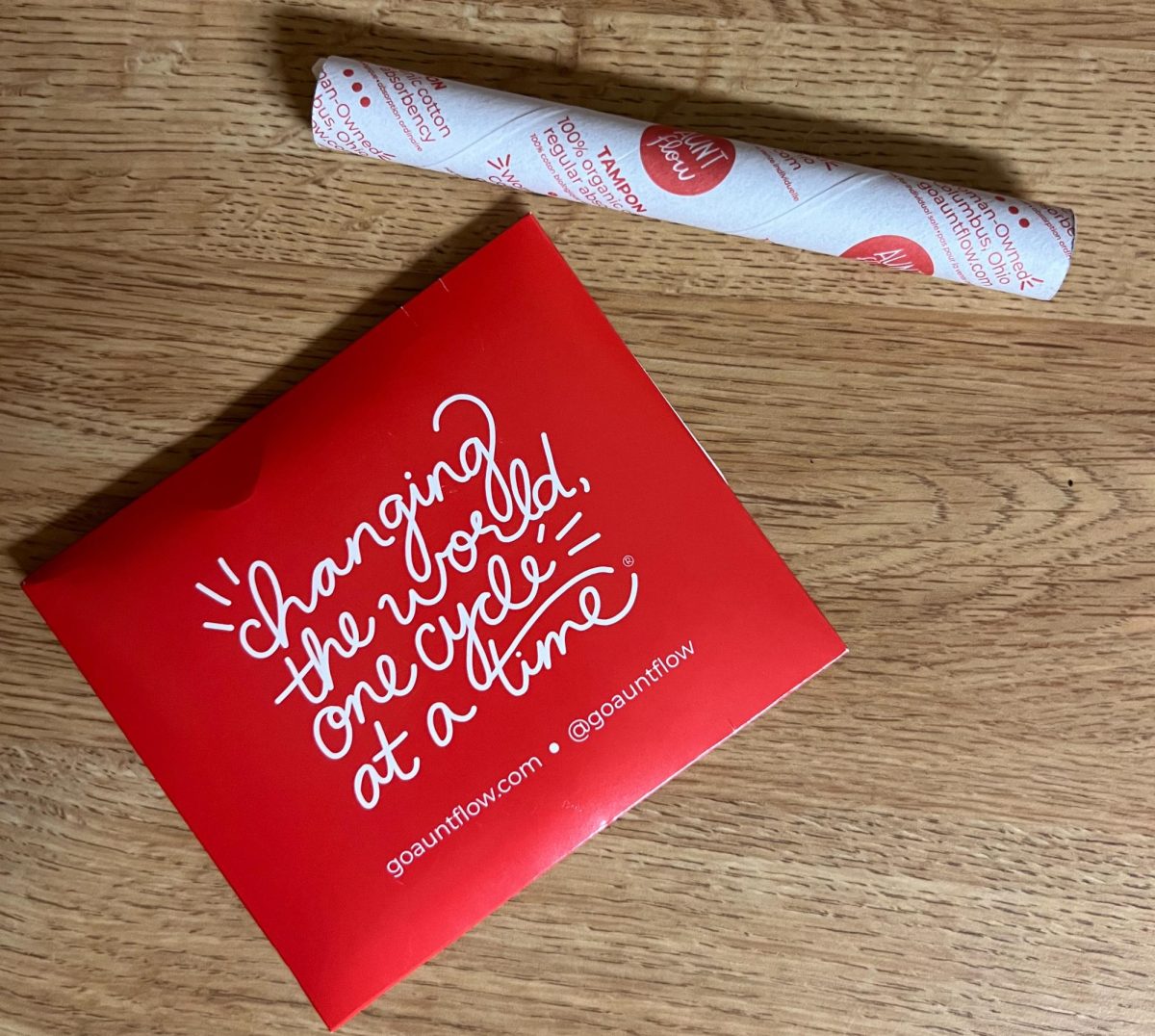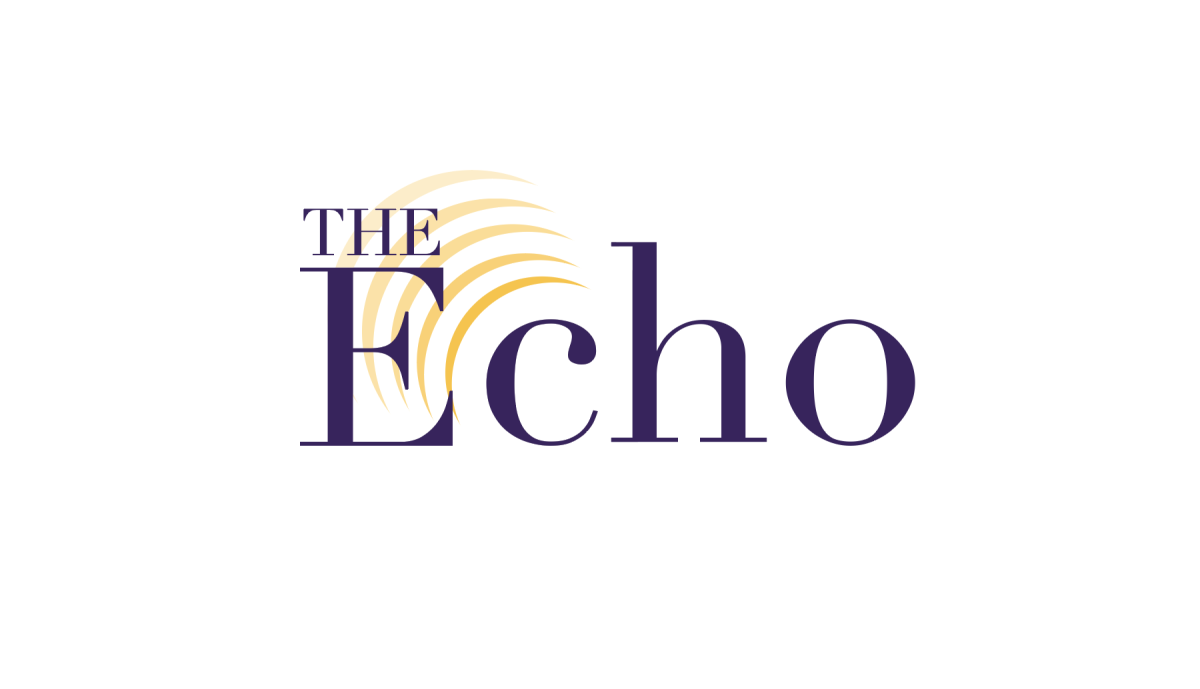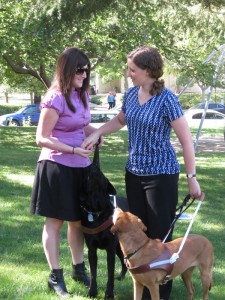
Friends fur-ever: V and Sonic are extra attentive as they watch students going to and from classes.
As in semesters past, CLU’s campus is playing host to service dogs and their handlers. Although their cute, fluffy faces may tempt you to treat guide dogs on campus like they’re normal household pets, both guide dog handlers and California Lutheran University staff urge students to interact appropriately.
Wendy Perkins, director of the Accessibility Resource Program at CLU, sent an email about guide dog etiquette to the CLU community.
“Guide dogs are one type of service dogs and they are working animals, not pets,” it stated.
Perkins’ email supplied students with the basic do’s and don’ts for encountering a guide dog on campus. “We send it out every academic year as we have students and guests on campus with guide dogs,” said Perkins. “However, this last winter I actually received my first guide dog from Guide Dogs for the Blind, so now it applies to me personally as well as to our students who use service animals.”
The Accessibility Resource Program provides services to all undergraduate and graduate CLU students.
CLU is home to more than 150 students who are registered with the ARP, an increase from approximately 50 students in the 2008 academic year.
The ARP office serves students with physical disabilities, learning disabilities and students challenged by the Autism Spectrum Disorder.
“Just because a person has a disability does not make them less of a person. Rather, I think it strengthens them into individuals with more self-awareness and capacity to accept others,” said Perkins.
Kayla Legare agrees.
“The email is good, helpful. It is good to educate everyone…some people are afraid to ask me if I need help,” said Legare.
Legare is a second-year graduate student who is seeking her master’s in counseling.
Legare and her guide dog, Sonic, walk the CLU campus daily.
When asked if CLU is disability-friendly she is quick to respond.
“Yes, it is awesome…CLU has great services and I feel CLU is on my side,” said Legare.
However, Legare and Sonic did not always find CLU’s campus easy to navigate.
“When I first attended CLU as an undergrad it was hard…the sidewalks were twirling and hard to learn,” said Legare.
“The challenge was having to learn how to get around the campus,” she said.
Perkins’ email aims to bridge the knowledge gap for students on how to help people with disabilities.
“I think awareness about disabilities and how disabilities impact the lives of many people is key, but it must be followed with openness, acceptance, and a desire to help,” said Perkins.
The email emphasizes that to help a disabled person, students should ask the individual and listen to their response.
If they do need help, ask how you can help and listen to their response before acting.
“I think one of the best things about CLU is the diverse student body,” said senior Broc Galbreth. “I truly respect students with disabilities. They are very thoughtful and amazing students…they are a great part of the CLU family.”
Matt O’Brien
Staff Writer
Published On Oct. 3, 2012

